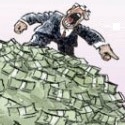|
KernelSlanders posted:I was the first to bite, but now, looking at his history in other threads, I suspect he might be trolling. Actually it's also possible he's practicing to be one of those get-paid-$0.04-per-post-on-facebook people. Trolls don't typically concede the point.  Anyways, anything interesting happening with the MJ discussion? I'm at work, so I can't watch it.
|
|
|
|

|
| # ? Jun 5, 2024 10:51 |
|
KillHour posted:Trolls don't typically concede the point. I missed the first half. They're in recess now. I read the written testimony, which wasn't terribly interesting. The DC Metro chief didn't really take a position and the USPP chief said they would need direction from the AG on how to handle people picked up for simple possession on parkland.
|
|
|
|
I started watching the previous hearing from March 4 at http://oversight.house.gov/hearing/mixed-signals-administrations-stance-marijuana-part-two/ I really wish someone on John Mica's staff could tell him that marijuana isn't a narcotic. e: Never mind, apparently there's some law that says it's a narcotic even if it isn't. That's even worse. KernelSlanders fucked around with this message at 17:23 on May 9, 2014 |
|
|
|
KillHour posted:You're all forgetting that you can buy this: This is off topic of course, but holy poo poo that makes me want a soda dispenser in my house all of a sudden and save money on soda forever. One of the few perks of being a part-timer at a movie theater and making minimum wage was having unlimited fresh soda.
|
|
|
|
TheRamblingSoul posted:This is off topic of course, but holy poo poo that makes me want a soda dispenser in my house all of a sudden and save money on soda forever. One of the few perks of being a part-timer at a movie theater and making minimum wage was having unlimited fresh soda. Don't you know that stuff is addictive and bad for you?
|
|
|
|
TheRamblingSoul posted:One of the few perks of being a part-timer at a movie theater and making minimum wage was having unlimited fresh soda. I was in a similar position, but then I got a different job, started drinking water instead of soda and then without changing any other part of my lifestyle at all, dropped ten pounds. Since then I realized the easy access to soda was just another way that job was loving with me. It's weird, when I stop to take account of everything, alcohol and soda have done way more to hurt my health than weed ever has. I think people should be free to do whatever, but it's crazy that weed is illegal in large part due to public health concerns and yet people are free to consume as much sugar water as they physically can, and worse they're free to enable that same behavior in their children.
|
|
|
|
KillHour posted:Disclaimer: Caffeine isn't bad for you. Studies show that it actually helps both your heart and your brain. It's also really hard (impractical) to overdose on. It is still addictive, and does have more side-effects than marijuana, however. NEVER mix it with alcohol. Anecdotally, my worst alcohol experience (outside of a scattering of instances of just simple excess) was when I was working a late shift covering a foreign election and in late evening chugged like 3 or 4 of those 5hr Energy things since I didn't fell they were kicking in. Got all wired up and swung by a bar before closing to try to chill out with 5 or so beers. Went home and lay in bed for about three hours completely awake but jittery, sweating and nauseated with the constant feeling the bed was rotating. While not an LSD freakout or anything, it was a pretty drat uncomfortable night and I shan't repeat it.
|
|
|
|
TapTheForwardAssist posted:Anecdotally, my worst alcohol experience (outside of a scattering of instances of just simple excess) was when I was working a late shift covering a foreign election and in late evening chugged like 3 or 4 of those 5hr Energy things since I didn't fell they were kicking in. Got all wired up and swung by a bar before closing to try to chill out with 5 or so beers. Went home and lay in bed for about three hours completely awake but jittery, sweating and nauseated with the constant feeling the bed was rotating. While not an LSD freakout or anything, it was a pretty drat uncomfortable night and I shan't repeat it. The problem is many people assume a stimulant (like caffeine) and a depressant (like alcohol) cancel out. In reality, you get the side-effects of both, and it can be an extremely dangerous situation. Especially if you pass out - a caffeine overdose plus alcohol poisoning puts a ton of stress on your heart and breathing becomes extremely erratic. It's a great way to end up in the hospital or dead. Just another reason why people shouldn't make assumptions about drugs. You need to go on real research, not gut instinct for these things.
|
|
|
|
It does make me wonder, though -- hypothetically, what would stop a company from putting addictive chemicals in other products to make people want them more and thus make more money? As in, it's not just marketing/advertising and how good something tastes, but that there are actual chemicals that make your body crave that something more that then drive you to buy more. As cafel puts it: cafel posted:It's weird, when I stop to take account of everything, alcohol and soda have done way more to hurt my health than weed ever has. I think people should be free to do whatever, but it's crazy that weed is illegal in large part due to public health concerns and yet people are free to consume as much sugar water as they physically can, and worse they're free to enable that same behavior in their children. In that sense, isn't it somewhat morally dubious, then, we push this stuff to people and even kids? The answer to this rhetorical question, as with other things, is that capitalism is a mess. See: 80's "Ketchup is a vegetable," etc Teriyaki Koinku fucked around with this message at 19:28 on May 9, 2014 |
|
|
|
KillHour posted:Disclaimer: Caffeine isn't bad for you. Studies show that it actually helps both your heart and your brain. It's also really hard (impractical) to overdose on. It is still addictive, and does have more side-effects than marijuana, however. NEVER mix it with alcohol. Some experts believe that caffeine is not addictive: http://www.sallysatelmd.com/html/2006-12-05_IsCaffeineAddictive.pdf The vast majority of people use caffeine sensibly but caffeine can trigger psychosis at high doses: Reissig, C.J., Strain, E.C., Griffiths, R.R. (2009). Caffeinated energy drinks–a growing problem. Drug and Alcohol Dependence, 99(1-3), 1-10. Broderick, P. & Benjamin, A.B. (2004). Caffeine and psychiatric symptoms: a review. Journal of the Oklahoma State Medical Association, 97(12), 538-542. Natale, F., Cirillo, C., Di Marco, G.M., di Vetta L.S., Aronne, L., Siciliano, A., Mocerino, R., Tedesco, M.A., Golino, P. & Calabrò, R. (2009). When chewing gum is more than just a bad habit. Lancet, 373, 1918. Hedges, D.W., Woon, F.L. & Hoopes S.P. (2009). Caffeine-induced psychosis. CNS Spectrums, 14(3),127-129.
|
|
|
|
KingEup posted:Some experts believe that caffeine is not addictive: http://www.sallysatelmd.com/html/2006-12-05_IsCaffeineAddictive.pdf Did you read the PDF that you linked? quote:Caffeine withdrawal includes headache, lethargy, irritability, and mental fuzzy-headedness. Some or all can occur among The entire paper is basically just an arugment from semantics that the addiction profile of caffiene doesn't exactly match the DSM definition. No actual science is contained in it. I especially like this part: quote:Though cessation of regular use may result in symptoms such as headache and lethargy, these Oh wait check this out: quote:ACKNOWLEDGEMENT Salt Fish fucked around with this message at 19:51 on May 9, 2014 |
|
|
|
Salt Fish posted:Did you read the PDF that you linked? Ah haha, that's loving amazing. There's always been a strong draw on me to become a corporate shill just because I'm attracted to the brazenness of it all. At it's best it's like performance art.
|
|
|
|
TheRamblingSoul posted:It does make me wonder, though -- hypothetically, what would stop a company from putting addictive chemicals in other products to make people want them more and thus make more money? Yeah, see also MAOIs being added to cigarettes which cause most of the physical withdrawals.
|
|
|
|
Salt Fish posted:Did you read the PDF that you linked? I can see why they'd argue the point, though. "Addictive" has very serious negative connotations. Caffeine is absolutely addictive, but since it's not actually bad for you (that we know of), it doesn't really matter all that much. It's like when they tried to say "Cigarettes aren't addictive, they're merely habit-forming."
|
|
|
|
KillHour posted:I can see why they'd argue the point, though. "Addictive" has very serious negative connotations. Caffeine is absolutely addictive, but since it's not actually bad for you (that we know of), it doesn't really matter all that much. It's like when they tried to say "Cigarettes aren't addictive, they're merely habit-forming." Their point is further reduced by the DSM IV having an entire heading devoted to caffeine related disorders in section III.
|
|
|
|
Salt Fish posted:Their point is further reduced by the DSM IV having an entire heading devoted to caffeine related disorders in section III. What does the DSM V say though? Seems caffeine addiction is an actual disorder now.
|
|
|
|
I don't know for sure but I used the DSM IV because thats what the study referenced for its definitions.
|
|
|
|
Anyone who has drank coffee for more than two days in a row knows caffeine is addictive. Just because someone can stop easily doesn't mean it isn't addictive. The potential for something to be addictive is a spectrum, and caffeine isn't too far to the right on it, but it's there. Headaches, lethargy, et cetera result from cessation. You may as well argue cigarettes aren't addictive. We just arbitrarily declare some drugs to be possible to use without destroying someone's life and which aren't, and beyond that we're ok with some drugs inevitably destroying lives and not others. It's totally without basis of any kind.
|
|
|
|
Salt Fish posted:I especially like this part: No, you don't understand the difference between physical dependence and addiction. quote:The term “dependence” has traditionally been used to describe “physical dependence,” which refers to the adaptations that result in withdrawal symptoms when drugs, such as alcohol and heroin, are discontinued. Physical dependence is also observed with certain psychoactive medications, such as antidepressants and beta-blockers. However, the adaptations associated with drug withdrawal are distinct from the adaptations that result in addiction, which refers to the loss of control over the intense urges to take the drug even at the expense of adverse consequences. For example, research has shown that when opiates are administered to a naive animal, adaptation begins to occur after the first dose so that the second dose has a discernibly decreased effect from the first. After several days of taking the medication, abrupt cessation produces a withdrawal syndrome varying with the duration of treatment and the dose level. This is an expected pharmacological response, and although it may occur among addicts, it is quite distinct from compulsive drug-seeking behavior. This has resulted in confusion among clinicians regarding the difference between “dependence” in a DSM sense, which is really “addiction,” and “dependence” as a normal physiological adaptation to repeated dosing of a medication. The result is that clinicians who see evidence of tolerance and withdrawal symptoms assume that this means addiction, and patients requiring additional pain medication are made to suffer. Similarly, pain patients in need of opiate medications may forgo proper treatment because of the fear of dependence, which is self-limiting by equating it with addiction. http://journals.psychiatryonline.org/article.aspx?articleid=96549 quote:Virtually anything can be addictive for the "right" person at the "right" time -- one of stress or disorientation, when that experience holds out significant and powerful associations for the person, when the person is not inclined or able to be restrained, when all consequences are damned. Addiction, you see, is not a label to be applied to specific things, but to an involvement a person creates in time and space. http://www.huffingtonpost.com/stanton-peele/addiction_b_1874233.html Warchicken posted:Anyone who has drank coffee for more than two days in a row knows caffeine is addictive. Just because someone can stop easily doesn't mean it isn't addictive. The potential for something to be addictive is a spectrum, and caffeine isn't too far to the right on it, but it's there. Headaches, lethargy, et cetera result from cessation. You may as well argue cigarettes aren't addictive. quote:addictions exist on a continuum of severity, from a mild problem that "only occasionally overwhelms a person's life" and may be short-lived, to the middle of the continuum where addicted people "strive to maintain a double life" and the appearance of normality, to the severe end when the addiction cannot be concealed, destroys the person's conventional lifestyle, causes great harm to others, and "can reach an unrelenting, hellish intensity and may have fatal consequences." http://www.harmreductionjournal.com/content/6/1/12 Addiction to smoking cigarettes is real. It is real because millions of people keep smoking despite adverse consequences. Nicotine addiction, however, is not real. There is no evidence that people form addictive involvements with just plain nicotine*. The same is true of caffeine. *Nicotine as a Determinant for Smoking: http://www.biblioteca.cij.gob.mx/Archivos/Materiales_de_consulta/Drogas_de_Abuso/Tabaco/Articulos/69899177.pdf KingEup fucked around with this message at 23:55 on May 9, 2014 |
|
|
|
KingEup posted:No, you don't understand the difference between physical dependence and addiction. Stating that I don't understand the difference between two tightly defined medical phrases is exactly an argument about semantics. It has nothing to do with the qualitative effects of caffeine. The paper is an explanation of a technical definition and not a discussion of caffeine itself. They are conflating a discussion about semantics with a discussion about a substance.
|
|
|
|
KingEup posted:No, you don't understand the difference between physical dependence and addiction. People form addictive involvements with anything.. Tv, food, games, cats, weed, etc. Just because something is not physically addicting does not mean it can't be mentally.
|
|
|
|
Salt Fish posted:Stating that I don't understand the difference between two tightly defined medical phrases is exactly an argument about semantics. It has nothing to do with the qualitative effects of caffeine. The paper is an explanation of a technical definition and not a discussion of caffeine itself. They are conflating a discussion about semantics with a discussion about a substance. I have an Aunt who was admitted to hospital recently because she consumes too much salt. The doctor has said her blood pressure is so dangerously high (from her overconsumption of salt) that she could die. Unfortunately, she has kept eating salt despite these adverse consequences. Is salt addictive?
|
|
|
|
KingEup posted:I have an Aunt who was admitted to hospital recently because she consumes too much salt. The doctor has said her blood pressure is so dangerously high (from her overconsumption of salt) that she could die. Food addiction/compulsive eating is real.
|
|
|
|
KingEup posted:I have an Aunt who was admitted to hospital recently because she consumes too much salt. The doctor has said her blood pressure is so dangerously high (from her overconsumption of salt) that she could die. I remember reading that salt cravings activate the same brain pathways as those in cocaine addiction cravings. I'm just not sure where. If you're inclined enough to look for it and find it, please let me know.
|
|
|
|
goodness posted:Food addiction/compulsive eating is real. Are the properties of certain foods, like salt and sugar, addictive? That's what people here are arguing, that a property of the coffee bean (caffeine) is addictive.
|
|
|
|
AuxPriest posted:I remember reading that salt cravings activate the same brain pathways as those in cocaine addiction cravings. I'm just not sure where. If you're inclined enough to look for it and find it, please let me know. Anything pleasurable activates this system. The measure of addictiveness is how absorbing, compelling, and harmful to the person an involvement is. Nothing else matters.
|
|
|
|
KingEup posted:Are the properties of certain foods, like salt and sugar, addictive? That's what people here are arguing, that a property of the coffee bean (caffeine) is addictive. Studies show that caffeine can cause a physical dependence though, so. "Roland Griffiths, a professor in the departments of psychiatry and neuroscience at the Johns Hopkins School of Medicine, said that studies had demonstrated that people who take in a minimum of 100 mg of caffeine per day (about the amount in one cup of coffee) can acquire a physical dependence that would trigger withdrawal symptoms that include headaches, muscle pain and stiffness, lethargy, nausea, vomiting, depressed mood, and marked irritability."
|
|
|
|
goodness posted:Studies show that caffeine can cause a physical dependence though, so. Only: quote:physical dependence is a largely separable phenomenon from addiction. Some drugs that are very addictive (e.g. cocaine) do not produce prominent physical dependence. http://www.ncbi.nlm.nih.gov/pubmed/15063085 Which is why I posted a link to this article earlier: http://journals.psychiatryonline.org/article.aspx?articleid=96549
|
|
|
|
KingEup posted:I have an Aunt who was admitted to hospital recently because she consumes too much salt. The doctor has said her blood pressure is so dangerously high (from her overconsumption of salt) that she could die. I have to drink coffee every day. If I don't have coffee I am completely ineffective and miserable. I have headaches, I'm irritable, I basically cannot work in an office environment. I wish I had never started drinking coffee and I've tried to quit before but relapsed. Going forward I'd prefer to never drink caffeine again but I'm not sure that I have that power. Is caffeine addictive?
|
|
|
|
KingEup posted:Only: I'm sorry, I'm having trouble following your argument across a bunch of posts. Is it that we should ignore physical dependence entirely as a criteria for addiction and only focus on people's propensity to continue using things that are objectively bad for them?
|
|
|
|
Salt Fish posted:I have to drink coffee every day. This is a faulty belief, your body does not need caffeine to survive (though lots of addicts have this belief about whatever it is they're addicted to). Are you of the opinion that you have to act on every bodily sensation or thought you have? Salt Fish posted:If I don't have coffee I am completely ineffective and miserable. I have headaches, I'm irritable, I basically cannot work in an office environment. That's because starving your brain of coffee, because it contains caffeine, will lead to neuroadaptations. These, often uncomfortable, sensations are transitory and will go away once the brain adapts. It doesn't mean you're addicted, just physically dependent. Salt Fish posted:I wish I had never started drinking coffee and I've tried to quit before but relapsed. Going forward I'd prefer to never drink caffeine again but I'm not sure that I have that power. Has your partner left you because of your involvement with coffee? Are you unable to fulfil your duties/obligations because of your relationship with coffee? Has the pursuit of coffee become so overwhelming that you have lost interest in all other things including self care? Salt Fish posted:Is caffeine addictive? No. You just appear to hold some faulty beliefs coffee, are confusing physical dependence with addiction and have a poor tolerance for transitory discomfort.
|
|
|
|
KingEup posted:Only: Only: Caffeine can cause both a physical dependence and be addicting, so what is your point exactly?
|
|
|
|
KingEup posted:No. You just appear to hold some faulty beliefs coffee, are confusing physical dependence with addiction and have a poor tolerance for transitory discomfort. I'll fill in the missing point from your definition. I have to spend upwards of 30-60 dollars on coffee each month. That is a quantitative harm to my life which now qualifies my experience for your overly scientific definition of the word addiction.
|
|
|
|
TheRamblingSoul posted:It does make me wonder, though -- hypothetically, what would stop a company from putting addictive chemicals in other products to make people want them more and thus make more money? Look up what's in a typical Camel or Marlboro, as well as past soda additives. In the real world, market regulations will stop companies from that practice - but only if the outcry is immediate and loud. You used to be able to buy alcoholic energy drinks - stuff like Sparks and Four Loko, which now exist just as lovely flavored malt beverages.
|
|
|
|
Okay, y'all disagree over whether the word "addiction" should imply physical consequences to stopping, or negative effects to one's life not being sufficient to make someone stop. You don't disagree about the effects of any drugs. Do we really need to debate which definition is proper? I have my own opinion which I'm not going to share because gently caress thinking this is a worthwhile thing to debate instead of just clarifying what we mean by "addiction" in a given context.
|
|
|
|
Xandu posted:I'm sorry, I'm having trouble following your argument across a bunch of posts. Is it that we should ignore physical dependence entirely as a criteria for addiction and only focus on people's propensity to continue using things that are objectively bad for them? I'm quite not sure if it's exactly what he's trying to say, but "physical" addiction/dependence has been falling out of fashion. The current DSM for example makes no distinction between physical and non-physical dependence. All cognitive processes are physical on some level, so it really doesn't make sense to talk about physical dependence. Often, what people mean by "physical" is having acute withdrawal effects or having somatic (e.g., tachycardia, lacrimation, diarrhea) symptoms, but in those cases one should probably just say what is meant. That's part of why I've argued here previously, that one should not say marijuana isn't physically addictive, because there are clearly (uncommon but extant) cases of marijuana dependence. It would be more responsible to say marijuana is not usually habit forming or is less prone to cause dependence or less addictive than tobacco.
|
|
|
|
Xandu posted:I'm sorry, I'm having trouble following your argument across a bunch of posts. Is it that we should ignore physical dependence entirely as a criteria for addiction and only focus on people's propensity to continue using things that are objectively bad for them? My point is that physical dependence on its own is poor indicator on which to base a diagnosis of addiction. It is common for me to manage people (usually the elderly) presenting with a complaint along the lines of: "my friend said that oxycodone is highly addictive and I've been taking it for years! Should I be worried!?". The response to this is to reassure the patient that physical dependence is an expected outcome of taking said medication and that unless their involvement with said substance is characterised by self neglect/the inability to hold down job/fulfil social obligations/larceny/pawning their possessions etc then they needn't be worried (other than about overdose or adverse drug interactions). I have yet to come across someone who presents like this who is actually addicted. That's not to say I don't manage people whose involvement with oxycodone has been very destructive and basically defines their miserable existence. However these people didn't suddenly lose control after accidentally taking 'the highly addictive opioids' for the first time. They took them and kept taking them because to do so served a purpose - it provided relief from an unbearable/pointless/disconnected existence and a became reason to get out of bed each day and do something. In essence it becomes a substitute life. It's same purpose served by gambling and other so called 'behavioural' addictions. Jeffrey posted:Okay, y'all disagree over whether the word "addiction" should imply physical consequences to stopping, or negative effects to one's life not being sufficient to make someone stop. You don't disagree about the effects of any drugs. Do we really need to debate which definition is proper? I have my own opinion which I'm not going to share because gently caress thinking this is a worthwhile thing to debate instead of just clarifying what we mean by "addiction" in a given context. The definition is pretty drat important since the entire drug war is predicated on the myth of drug induced addiction/pharmacological determinism: the popular idea that certain substances like alcohol or heroin possess unique addictive or "enslaving" powers. Edit: I'd also encourage people to read the work of acclaimed Neuroscientist Prof. Carl Hart: quote:Crack or any other drug isn’t really all that overwhelmingly good or powerfully reinforcing: it gained the popularity that it achieved in the ‘hood (far less than advertised) because there weren’t that many other affordable sources of pleasure and purpose and because many of the people at the highest risk had other pre-existing mental illnesses that affected their choices. http://www.nytimes.com/roomfordebate/2014/02/10/what-is-addiction/as-with-other-problems-class-affects-addiction Salt Fish posted:I'll fill in the missing point from your definition. I have to spend upwards of 30-60 dollars on coffee each month. That is a quantitative harm to my life which now qualifies my experience for your overly scientific definition of the word addiction. If you can't afford a 30-60 dollars a month habit it's not because you're a caffeine junkie it's because you're experiencing extreme poverty and poverty is awful. KingEup fucked around with this message at 12:06 on May 10, 2014 |
|
|
|
E:nm
|
|
|
|
KingEup posted:
So if by some freak occurrence a caffeine habit now cost more like $800 a month... It seems like the essential point you're making is that substances, on their own, cannot be considered addictive. People can be addicted to substances though. That's fine, but it makes for a narrow definition that isn't particularly useful when comparing drugs. Because the reality is not all drugs are equal when it comes to causing addiction.
|
|
|
|

|
| # ? Jun 5, 2024 10:51 |
|
KingEup posted:Has your partner left you because of your involvement with coffee? Are you unable to fulfil your duties/obligations because of your relationship with coffee? Has the pursuit of coffee become so overwhelming that you have lost interest in all other things including self care? So if we provided free heroin safely to junkies they would no longer be "addicted" to heroin because it would no longer negatively affect their life, right? Using this definition of addiction biases the term against illegal drugs and in favor of legal ones.
|
|
|

















